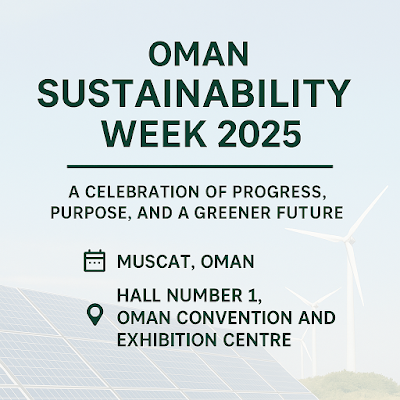He Lost Everything—Then Worm Composting Made Him a Millionaire
In 2015, Ramesh Kumar, a third-generation farmer from Uttar Pradesh, was drowning in debt. Years of chemical-based farming had sucked the life out of his soil. His yields dropped drastically, his profits vanished, and he was days away from selling off the last bit of his ancestral land.
But that moment of despair led him to a life-changing discovery — vermicomposting. What started as a desperate experiment in a small corner of his farm has now transformed into a profitable organic venture, inspiring thousands of farmers across India.
This is not just Ramesh’s story. It’s the story of India’s vermicompost revolution.
The Downfall of Chemical Farming in India
For decades, Indian farmers have relied heavily on synthetic fertilizers to boost crop yields. But the long-term impact has been devastating:
Over 30% of Indian farmland is now considered low in organic carbon.
Soil quality has degraded, water retention has declined, and micronutrients are depleted.
The cost of inputs like DAP and urea keeps rising, pushing farmers deeper into financial stress.
Many farmers like Ramesh found themselves trapped in a vicious cycle — poor soil, poor yield, more fertilizer, more debt.
The Turning Point: Embracing Vermicomposting
In a last-ditch effort to save his land, Ramesh attended a government-led workshop on sustainable agriculture. That’s where he learned about vermicomposting — a natural process using earthworms to convert organic waste into nutrient-rich fertilizer.
He started small with:
2 composting beds
5 kg of Eisenia fetida (red wigglers)
Cow dung and kitchen waste from nearby homes
Within three months, the results were undeniable. His soil regained moisture, his vegetables looked healthier, and he started selling surplus compost to neighboring farms.
Turning Waste into Wealth: The Vermicompost Business Model
Fast forward to 2024, Ramesh now produces over 2 tonnes of vermicompost per month, supplying local nurseries, farmers, and even exporting to Dubai through a distributor.
His earnings?
₹2.5 lakhs/month from compost sales
Additional revenue from workshops and farm tours
Net profit margin: 65%
He’s also helped over 150 farmers in his district set up their own vermicompost units.
Why Vermicomposting is a Growing Trend in India
India is experiencing a massive shift toward organic farming, and vermicomposting is at the heart of this movement.
🔍 Vermicompost Market Insights:
Global market size: $266M in 2022, expected to reach $628M by 2029
Export from India alone valued at $1B in 2022–23
CAGR: 14.9%
💡 Key Growth Drivers:
Government subsidies for organic farming
Farmer awareness programs by NGOs
Consumer demand for chemical-free produce
Entrepreneurs like Pooja from Maharashtra sell 500 tonnes annually, while Abdul from Kashmir earns ₹50,000 daily with a 5-tonne unit.
Benefits of Vermicompost
Improves soil aeration and water retention
Boosts microbial activity and plant growth
Reduces dependence on synthetic fertilizers
Cost-effective and sustainable
Innovations Making Vermicompost Faster & Smarter
Institutions like IIT Guwahati are leading the way. Their new two-stage biodegradation technique produces high-quality compost in just 27 days — cutting traditional timelines in half.
Urban startups are also embracing compact vermi units for balcony gardens, terrace farms, and school projects.
How to Start a Vermicompost Business in India
Thinking of starting your own venture? Here’s a quick breakdown:
🧱 Basic Setup Needs:
Space: 200–500 sq ft (even in your backyard)
Raw materials: Cow dung, dry leaves, vegetable waste
Earthworms: Eisenia fetida (₹250–₹400 per kg)
Beds or pits with shade
💰 Costs & Profits:
| Item | Estimated Cost (INR) |
|---|---|
| Earthworms (10kg) | ₹3,000 – ₹4,000 |
| Construction of beds | ₹10,000 – ₹15,000 |
| Raw materials (monthly) | ₹2,000 – ₹3,000 |
| Total initial investment | ₹20,000 – ₹30,000 |
Break-even: Within 4–6 months
ROI: 60–70% per cycle
Government schemes like Paramparagat Krishi Vikas Yojana (PKVY) provide support and training.
🌿 Ready to Dig into the Future of Farming?
As Ramesh’s journey proves, vermicomposting isn't just about waste management—it's about creating sustainable income, restoring soil health, and leading the charge in organic farming in India.
With minimal investment, high returns, and increasing demand both locally and globally, there's never been a better time to start a vermicompost business in India.
🚀 Whether you're a seasoned farmer, green entrepreneur, or eco-conscious citizen, vermicompost offers a smart, scalable, and eco-friendly path forward.
If you're excited about building your own vermicomposting unit, drop your questions or success stories in the comments!
And don’t forget to share this article with fellow farmers and entrepreneurs looking to turn waste into wealth.





Comments
Post a Comment